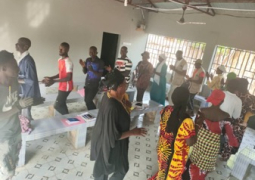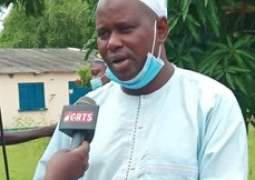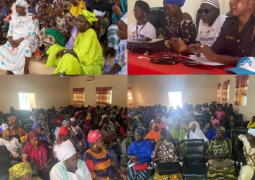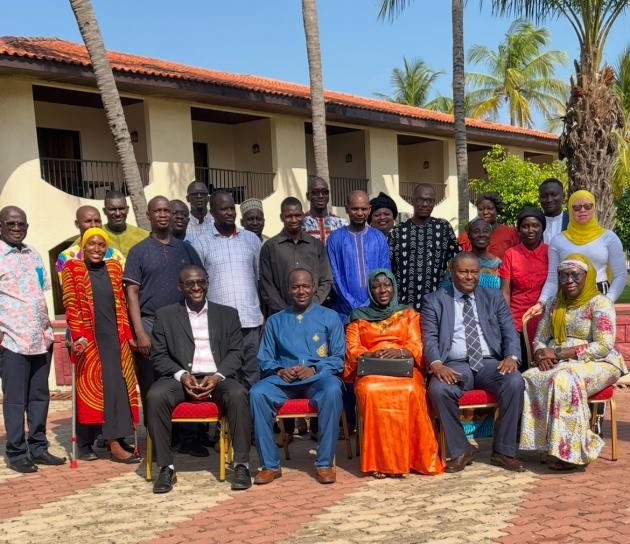
Opening the workshop, NHRC Chairperson Emmanuel D. Joof emphasised the importance of collaboration in promoting human rights and national development. “We are all in it together,” he stated, urging collective action to ensure no Gambian is left behind. Joof described the enactment of the PWDs Act as a landmark in The Gambia’s human rights journey, marking a shift from a charity-based to a rights-based approach that empowers physically challenged persons as equal citizens and rights holders.
The training focused on deepening participants’ understanding of the PWDs Act, the UN Convention on the Rights of Persons with Disabilities (CRPD), and the Sustainable Development Goals (SDGs). It also fostered open dialogue, critical reflection, and shared learning to help translate legal rights into tangible change.
Chairperson of the National Disability Advisory Council, Muhammed Krubally, praised the NHRC for organising what he described as a timely and impactful initiative. He cited Article 33 of the CRPD, which mandates state parties to establish a monitoring mechanism, a role assigned to the council in The Gambia.
Krubally stressed the weight of this responsibility, which includes conducting accessibility audits to ensure persons with disabilities can fully access public spaces, digital platforms, education, employment, healthcare, and social services.
“As members of the National Disability Advisory Council, we are accountable to the people, especially persons with disabilities, and to the institutions and ministries that nominated us,” he said. “We have a huge responsibility to discharge, and it is essential that we are constantly reminded of our duties so that our presence in the council remains meaningful and impactful.”
He expressed gratitude to the NHRC for prioritising disability rights and acknowledged the support of UNFPA, ChildFund, and other partners. Krubally reaffirmed the council’s commitment to upholding the principles of diversity, autonomy, non-discrimination, equality of opportunity, accessibility, and respect for human dignity.
He concluded with a pledge that the council would work diligently to identify gaps, strengthen coordination, and ensure the rights and interests of persons with disabilities are protected and promoted without discrimination.
Ilo Jallow, Permanent Secretary at the Ministry of Gender, Children and Social Welfare, described the training as timely, noting that the ministry is intensifying efforts to operationalise the National Advisory Council, established under the PWDs Act.
Jallow, thus called the council a key institution in advancing disability rights and inclusion, adding that its effectiveness depends on members’ deep understanding of the Act and their ability to implement it through collaboration and informed decision-making.
He highlighted the Act as a major milestone in The Gambia’s pursuit of equality, as it domesticates the principles of the CRPD and guarantees access to healthcare, education, social protection, rehabilitation, vocational training, communication, and employment for persons with disabilities.
“The Act symbolises our national commitment to eliminate discrimination and build a more inclusive society,” Jallow said. “The National Advisory Council serves as a bridge between the government and the disability community, advising on policy, monitoring programme implementation, and promoting public awareness to ensure no one is left behind.”
He reaffirmed the ministry’s commitment to supporting the council and collaborating with all partners to strengthen disability inclusion nationwide.
“As you engage in the next two days of sessions,” Jallow told participants, “remember that disability inclusion is not an act of charity; it is a matter of rights and justice. Persons with disabilities are equal members of society, endowed with talents, aspirations, and contributions vital to our national development.”
Read Other Articles In National News
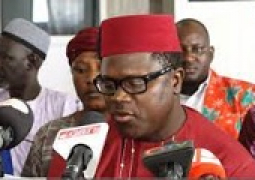
‘No amount of political tantrum will derail the work of the Commission’
Feb 23, 2023, 1:03 PM
